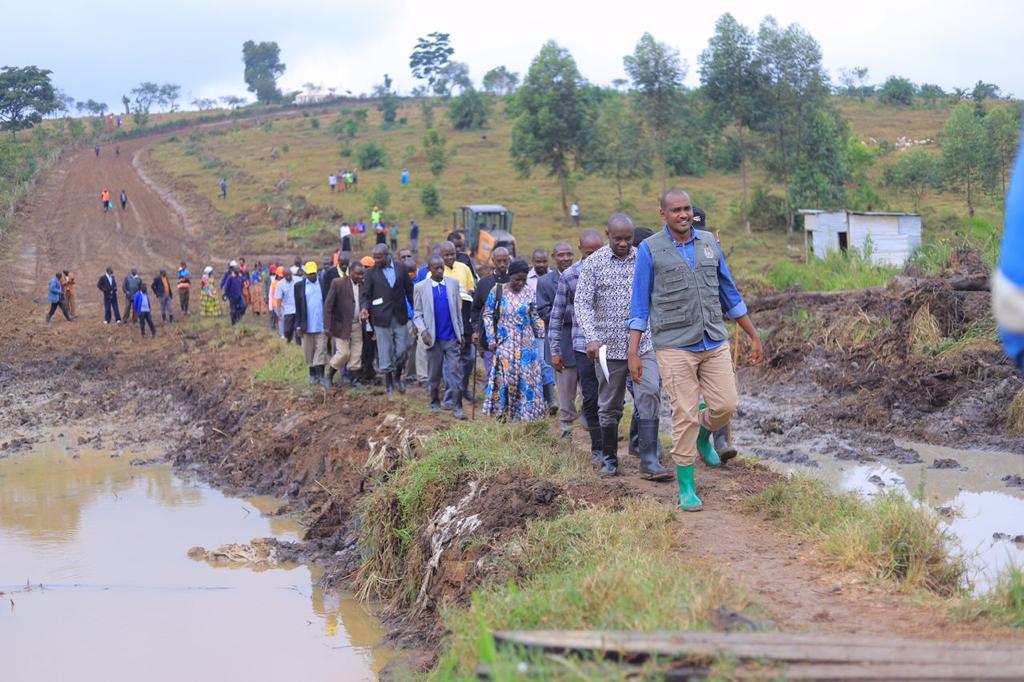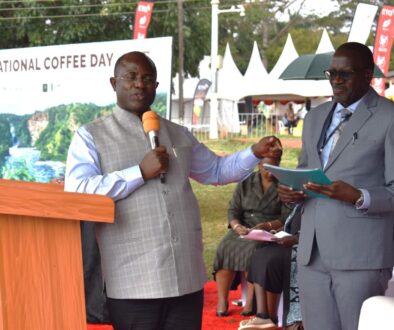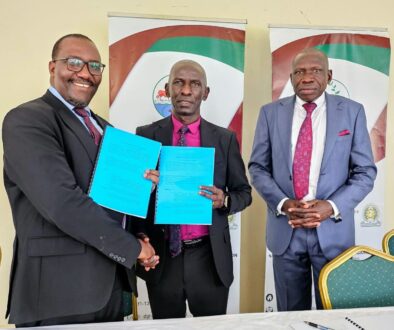MAAIF, World Bank Discuss ACDP Progress

The Permanent Secretary of the Ministry of Agriculture, Animal Industry and Fisheries (MAAIF), Maj. Gen. (Rtd) David Kasura-Kyomukama, Monday morning chaired a meeting with the coordination unit of the Agriculture Cluster Development Project (ACDP) and representatives of the World Bank who will be undertaking an implementation mission on ACDP.
The ACDP, a $ 248 million project, is a crop sub-sector project supported by the World Bank and implemented by the government through MAAIF since 2017.
The objective of ACDP for Uganda is to raise the quantity and quality of agricultural productivity and production to meet domestic demand and to expand exports to the EAC and COMESA, or East African, and the Common Market for Eastern and Southern Africa.
The project also aims to raise on-farm productivity, production, and marketable volumes of maize, beans, rice, cassava, and coffee in 57 districts organized into 12 geographical clusters.
Through the ACDP, the government has also eliminated hindrances to transportation along farm access roads for the benefit of farming communities in the 57 project districts.
The government has been running a subsidy programme to enable farmers to access critical farm inputs including fertilizers and agrochemicals at subsidized prices. So far, 117 farmer organizations signed grant agreements with the government and are receiving grants.
The matching grant is a cost-sharing mechanism where the government finances 67 percent of the cost of tools, equipment, machinery, and services needed to scale up post-harvest handling.
No Value For Money
In July 2022, Members of Parliament called for a probe into the implementation of the Agriculture Cluster Development Project (ACDP), citing failure to meet the intended expectation and lack of value for money.
The call followed an oversight visit by the MPs on the Committee on Agriculture, Animal Industry, and Fisheries to Kyotera, Rakai, Masaka, and Kalungu districts on 12 July 2022.
The committee’s vice chairperson, Dr Agnes Atim, said that the mid-term monitoring and evaluation report presented to Parliament was contrary to what they discovered on the ground.
“The report we read shows that everything was well in terms of supervision, project implementation, and its impact. We thought for once we had a project that would change the lives of our people,” she said.
Beneficiaries who talked to the MPs said they had not been trained as the agriculture ministry and the district leaders had claimed in their reports.
“With limited monitoring from the district and the ministry, we feel there is a need for investigation to unearth any rot and misuse of funds,” Dr Atim said
“We have not seen the element of capacity building. The cooperative societies do not have proper books of accounts, no offices, and no clear records of how they implemented the projects,” she added.
“The first thing we noticed was the infrastructure. In our view, they do not conform to the set standards except for one cooperative society we visited in Kyotera. You do not know whether they constructed a store, a warehouse or just a building,” she further added.





